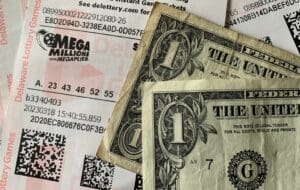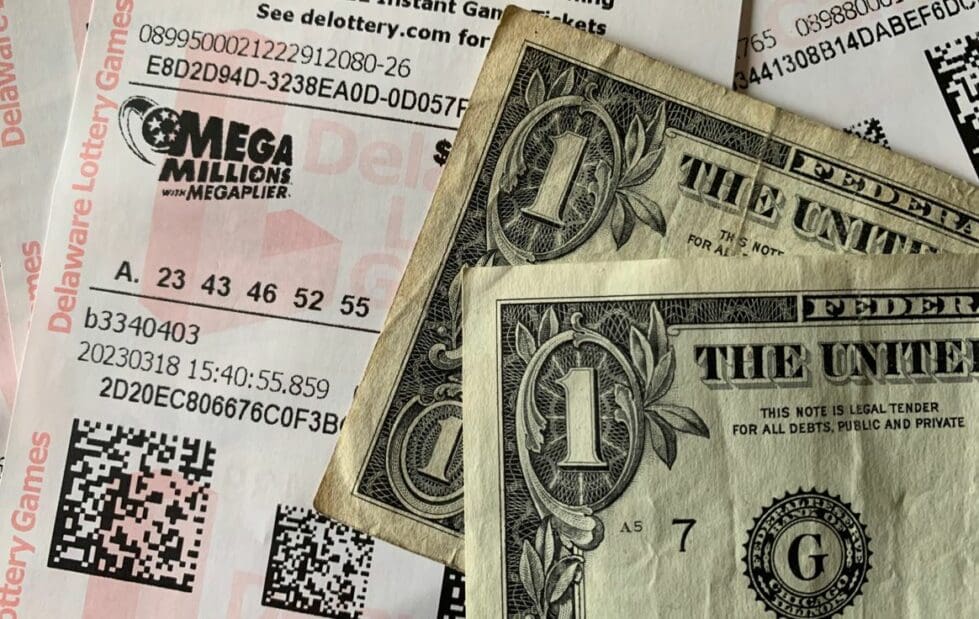
With jackpot fatigue, It’s taking larger and larger jackpots to initiate the same lottery ticket sales, a Delaware financial committee was told last week.
The Delaware Lottery plans to allow patrons of top lottery ticket sellers to use their debit cards to buy tickets over the counter.
The lottery also will add a Sunday drawing to two of its popular draw games.
The two moves are expected to help the Lottery add another $2.4 million to the state budget in fiscal year 2024, which starts July 1, and $6 million in fiscal year 2025.
The lottery this year added $326 million to the state general fund, said Helene Keeley, executive director of the Delaware Lottery,
Since its founding in 1975, the lottery has only allowed cash to be used to buy a ticket over the counter.
The lottery did allow debit cards to be used in machines that sell tickets in places such as Wawa and Royal Farms.
By this time next year – which would be the third quarter of the state’s fiscal year – the lottery plans to let its top 100 retailers begin taking debit cards – but not credit cards or other forms of cashless payments such as Venmo or Apple Pay.
The Lottery also plans to add a Sunday night drawing to its popular Play 3 and Play 4 games.
Right now, the games have a drawing each morning and each evening Monday through Saturday, but only a morning drawing on Sunday.
“People are loyal to certain products. And in all our research in all our surveys that we do, it’s very apparent that people are loyal,” Keeley said. “Our decision to add the Sunday evening draw was based upon research. We’re not just saying, ‘Let’s add this draw and hopefully people who play the evening draw on a regular basis will come along and do that.’”

Helene Keeley
Draw games bring in more revenue than the national Powerball and Mega Millions games.
The lottery pulled in $34.6 million for its Play 3 games and $28.7 million from Play 4 games. It sold $23.5 million in Powerball tickets, $11.1 million for the Mega Million, but just $2.8 million in Lotto America tickets.
Keeley said she was not aware of any plans to expand the number of MegaMillions draws per week, like PowerBall has done.
The lottery’s $825.2 million in revenue in the 2022 fiscal year including $416.5 million from video slots, followed by draw games at $119.8 million, instant games at $110.9 million, the sports lottery at $109.5 million, table games at $56.3 million, and I-Gaming $12 million according to its website.
The lottery transferred $284.6 million to the state of Delaware, with $233 million transferred to the state’s general fund, $50 to the Department of Agriculture, and $1.5 million to the Department of Health & Human Services..
Revenues in this past fiscal year are higher in absolute terms than they’ve been going back at least 20 years, during which revenues fluctuated between $600 and $700 million.
The 2019 fiscal year was the second highest in terms of absolute revenue, with the lottery making $782.7 million, followed by $770.7 million in 2021, $755.1 million in 2007, 742.2 million in 2011, and $674 million in 2002.
One interesting aspect of the lottery showed up in last week’s meeting of the Delaware Economic and Financial Advisory Committee: Lottery fatigue.
Record jackpots like July 2022’s $1.3 billion Mega Millions ticket and November 2022’s $2.04 billion Powerball ticket add to the state coffers.
But It’s taking larger and larger jackpots to generate the same amount of sales, the committee was told.
A slide showed how a 2016 $1.6 billion jackpot Powerball ticket generated almost $6 million in sales, but a $2 billion dollar Powerball jackpot two months ago generated sales a little bit less.
Some of that is inflation, the committee was told, but there’s no doubt that it does take larger and larger jackpots to generate the same revenue.
Keeley said that increasingly buyers wait for the jackpot to rise before showing heightened interest.
“We see that sometimes players wait for the jackpot to rise above $500 million before we see significant play and in some cases lines at retailers and things like that,” Keeley said. “I guess you equate that to penny candy. Penny candy is not penny candy anymore, it’s 50 cents a candy and the value of $500 million is not as significant in customers’ eyes as a billion dollars.”
One thing that doesn’t seem to affect lottery ticket sales is inflation, Keeley said.
“We do not see that all,” she said.
Share this Post




